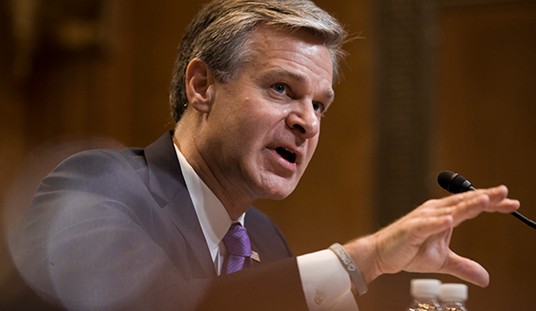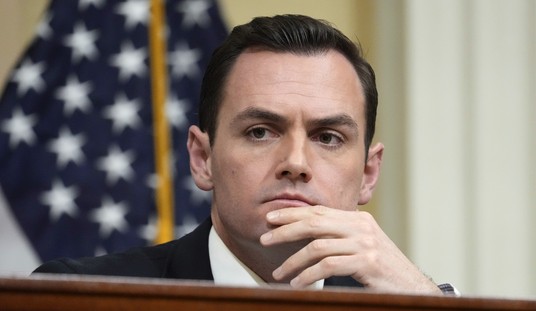As the president again prepares to extend the deadline for an agreement with Iran over its nuclear program, though without calling it an extension, it’s time to take stock of what Barack Obama’s myopic pursuit of a legacy achievement in his second term has wrought.
The president and his allies have said on any number of occasions that no deal with Iran is preferable to a bad deal, but the administration has given every indication that the opposite is true. The Obama administration is sacrificing its legitimacy at home and faith in America abroad for fleeting and personal gain.
The negotiation process alone has resulted in the increasing isolation of the elected Israeli government and a chill in bilateral relations between Washington and Jerusalem. The Israeli government’s opposition to the terms of a nuclear deal with Iran has caused a schism between these two historic allies that may not entirely heal after Obama leaves office in 2017.
On Monday night, reports indicated that the Israeli-American relationship had deteriorated to a point where Israeli officials are now sharing with American lawmakers intelligence that they gleaned from compromising the P5 + 1 talks. Surely as a result of selective leaks from the White House, this operation was revealed in the political press alongside overwrought reaction quotes from unnamed officials close to the administration. “It is one thing for the U.S. and Israel to spy on each other. It is another thing for Israel to steal U.S. secrets and play them back to U.S. legislators to undermine U.S. diplomacy,” an American official told The Wall Street Journal.
The administration’s progressive partners in the media took their cues. “Allies spy on one another. That’s normal,” Vox.com’s Max Fisher reflected pensively. “Using that spying to sabotage an ally’s regional strategy is not.” By “sabotage,” we mean merely revealing the details of nuclear negotiations led by the White House, the disclosure of which has now led 414 of 535 American legislators to express their reservations about being shut out of this dubious process in writing. If the White House is concerned that Israeli operatives are misleading American elected officials with the selective release of details about those talks, they could easily clear up that misunderstanding in private and save Israeli face in the process. But the information Israel provided to American lawmakers was likely accurate, and the White House wanted to embarrass Jerusalem by litigating the matter in public.
Israel is not content to wait for Washington to come to its senses. Israeli operatives have reportedly now turned to French officials to ensure that their interests in the region are defended.
For the White House, Obama’s legacy achievement is more important than the alliance with Israel.
Obama’s pursuit of a nuclear deal has also yielded to Tehran excessive deference from Washington. Iran is enjoying previously unknown freedom of action in the region, and the Islamic Republic has made the most of it. With pro-Iranian proxies operating freely in four Middle Eastern capitals, America’s traditional Sunni Arab allies are terrified, and they are working to secure their futures in a post-American world.
The Arab Spring demonstrated clearly the frailty of the strongmen-led Arab governments that the West once came to rely upon as unsavory but effective partners. Many of the figures who dominated the political processes in their respective countries in earlier decades are now gone. As Washington has come to rely upon the Shia-dominated forces in the region and the influence Tehran wields over them, the looming Iranian hand extends its shadow over the whole region. America’s traditional allies in Saudi Arabia and Egypt are not taking their security concerns for granted.
“Today, Abdullah’s successor, Salman bin Abdul Aziz, inherits the Saudi policy of containing Iran and its allies, of countering revolutionary sentiment in the region and of maintaining a sometimes tense relationship with the United States,” reporter and professor Mohamad Bazzi warned in January. “And the stakes appear to be higher than ever for Salman with the apparent takeover of Yemen—which sits on Saudi Arabia’s southern border—by the Iranian-allied Shiite Houthi movement.”
As the Saudis echo Israeli concerns about a prospective nuclear deal, flirt with a regional security force operated out of Riyadh, and secure their own pathway to a bomb, the prospect of a nuclear deal with Iran has made the Arab Peninsula more volatile.
The Sunni-dominated state of Egypt has also taken to looking after its own interests. The military government in Cairo, already suspicious of the West after Obama lent his support to Mohamed Morsi’s deposed Muslim Brotherhood government and refused to provide military aid to Egypt following his ouster, is joining in the fight against ISIS along with other Sunni-led Arab states in places like Libya. Egypt is not merely securing its region, but it is also creating a zone of influence in order to cast itself as the defender of Arab security against a nuclear-capable Iran and its Shiite surrogates.
“The treachery of the U.S. Administration is the reason why Egypt’s faith in the United States, which is supposed to defend the Arabs against a nuclear Iran, has effectively evaporated,” read a February analysis published by The Gatestone Institute. “It is possible, in fact, that U.S. policy is to weaken the Sunni world that is seeking to unite under el-Sisi’s flag of modernity. With European complicity, the U.S. Administration is trying to defraud the Arabs and turn the Israeli-Palestinian conflict into a center of Middle Eastern chaos, in order to hide the nuclear deal they are concocting with Iran.”
Even if this is an uncharitable interpretation of administration policy, it is the interpretation that has found a favorable audience in the Arab World’s Sunni-dominated capitals. “A lot of the Gulf countries feel they are being thrown under the bus,” said the prominent Abu Dhabi-based commentator Mishaal al-Gergawi. “The Gulf thought it was in a monogamous relationship with the West, and now it realizes it’s being cheated on because the U.S. was in an open relationship with it.”
For the White House, Obama’s legacy achievement is more important than the alliance with Saudi Arabia and Egypt.
And at home, a revolt is brewing in Congress. Democratic and Republican members of the legislature have grown understandably leery of the White House’s conspicuous efforts to shut them out of the process. Dual letters crafted by a bipartisan cast of legislators indicate that it is increasingly possible that a veto-proof majority in both chambers of Congress might act to repudiate a deal that does not force Tehran to renounce nuclear technology and reverse its enrichment program.
Reports indicate that the U.S. Senate will move forward in April with a bipartisan measure backed by Sens. Bob Corker (R-TN) and Bob Menendez (D-NJ) that will compel the White House to seek Senate ratification of any nuclear accord reached with Iran. The senators’ aim is not to ensure the deal outlasts the administration but to kill it. And they just might succeed in that endeavor over the administration’s objections.
For the White House, Obama’s legacy achievement is more important than his relationship with Congress.
Far from making the world a safer place, the administration has sacrificed geopolitical stability in pursuit of an exhibit in the Obama presidential library. A brief survey of the upheaval that has resulted from the president’s headstrong approach to nuclear negotiations with Tehran suggests that the marginal benefits associated with a nuclear deal are not worth the costs.








Join the conversation as a VIP Member